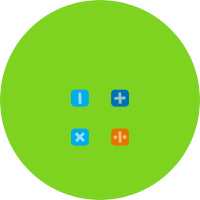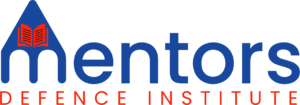CDS Coaching in Delhi
Introduction
The Combined Defence Services Examination (CDS) is a prestigious test conducted by the Union Public Service Commission (UPSC) for the selection of Commissioned Officers in various branches of the Indian Armed Forces. If you’re aspiring to join the Indian Military Academy (IMA), Officers Training Academy (OTA), Indian Naval Academy, or Indian Air Force Academy, understanding the CDS examination is crucial. This guide will provide you with valuable insights into the CDS examination, eligibility criteria, and the examination pattern.
Enquiry Form
CDS Examination Overview
The Combined Defence Services Examination (CDS) is conducted by the Union Public Service Commission for recruitment of Commissioned Officers in the Indian Military Academy, Officers Training Academy, Indian Naval Academy and Indian Air Force Academy. The Notification for the examination is usually released in the months of December and May, and the examinations are conducted in April and September respectively. Only unmarried graduates are eligible to sit for the exam. Examination is conducted twice a year. Successful candidates are admitted into the respective Academies after an interview conducted by the Services Selection Board (SSB).
Eligibility Criteria
Candidates must meet specific eligibility criteria to appear for the CDS examination:
Nationality:
- Indian citizen, or
- A subject of Bhutan, or
- A subject of Nepal, or
- A Tibetan refugee who came over to India before 1st January, 1962 with the intention of permanently setting in India, or
A person of Indian origin who has migrated from Pakistan, Burma, Sri Lanka and East African country of Kenya, Uganda, the United Republic of Tanzania, Zambia, Malawi, Zaire and Ethiopia and Vietnam with the intention of permanently setting in India.
Provided that a candidate belonging to categories (ii), (iii), (iv) and (v) above shall be person in whose favour a certificate of eligibility has been issued by the Government of India. Certificate of eligibility, will not , however, be necessary in the case of candidate who are Gorkha subjects of Nepal.
Age Limit, Sex and Marital Status
(i) For IMA and Indian Naval Academy-unmarried male candidates having age not less than 18 years on 1st July and not more than 23 years on 2nd July in accordance with the year of examination are eligible.
(ii) For Air Force Academy-male candidates having age not less than 19 years as on 1st July and not more than 23 years as on 2nd July in accordance with the year of examination. (upper age relation of upto 26 years for candidates holding Commercial Pilot License issued by DGCA).
(iii) For Officer’s Training Academy-male candidates (married or unmarried) and female candidates (unmarried and issueless widows or divorces who have not remarried) having age not less than 18 years as on 1st July and not more than 24 years as on 2nd July in accordance with the year of examination are eligible.
Educational Qualification
(i) For IMA/OTA a degree from a recognised university or equivalent.
(ii) For Naval Academy degree in engineering from a recognised university.
(iii) For Air Force Academy degree from a recognised university (with Physics and Mathematics at 10+2 level) or Bachelor of Engineering.
Examination Pattern
(i) The written examination will be as follows:
|
Subject
|
Duration
|
No. of Questions
|
Max. Marks
|
|---|---|---|---|
|
English
|
2 hours
|
120
|
100
|
|
General Knowledge
|
2 hours
|
120
|
100
|
|
Elementary Mathematics
|
2 hours
|
120
|
100
|
Note– For admission in OTA, candidates are required to give only English and General knowledge papers of 200 marks. One third of the marks will be deducted for each wrong answer.
(ii) The SSB procedure consists of two stage selection process. Only those candidates who clear the stage I are permitted to appear for stage II.
- Stage I comprises of Officer Intelligence Rating (O1R) tests and Picture Perception, Description Test (PP and DT)
- Stage II comprises of Interview Group Testing Officer tasks, Psychology Tests and the Conference. These tests are conducted over 4 days.
Comprehensive CDS Coaching: Your Path to Success
f you’re aiming to join the elite ranks of the Indian Armed Forces through the Combined Defence Services (CDS) Examination, investing in comprehensive CDS coaching is a strategic choice. Delhi, known for its picturesque landscapes and a hub for defense aspirants, is home to several prominent coaching centers, including LWS SSB Interview, offering top-notch CDS coaching. Let’s delve deeper into what CDS coaching entails and why it’s crucial for your success.
Why Opt for CDS Coaching?
Expert Guidance: CDS is a highly competitive examination that requires a deep understanding of the syllabus, exam pattern, and the ability to solve questions effectively. CDS coaching institutes have experienced faculty who are well-versed in the nuances of the exam. They provide expert guidance and strategies for tackling the examination successfully.
Structured Curriculum: CDS coaching institutes follow a structured curriculum that covers all the subjects and topics relevant to the examination. This ensures that you don’t miss out on any essential areas and are well-prepared for each paper, including English, General Knowledge, and Elementary Mathematics.
Regular Mock Tests: Mock tests are a crucial component of CDS coaching. They help you gauge your progress, identify your strengths and weaknesses, and get a feel for the real examination. Coaching institutes conduct regular mock tests to simulate exam conditions and provide you with a competitive edge.
Time Management: Time management is key in the CDS examination, given the limited time available for each paper. CDS coaching helps you develop effective time management skills, ensuring that you can answer all questions within the allocated time.
Personalized Attention: Many CDS coaching institutes offer personalized attention to their students. They understand that each student may have unique needs and challenges, and they tailor their coaching to address those individual requirements.
Peer Learning: Coaching classes provide a platform for interaction with like-minded peers. Engaging with fellow aspirants can be motivating and can also foster healthy competition, pushing you to strive for your best.







